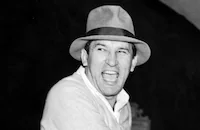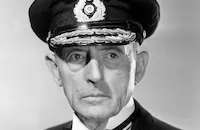Scarlet Dawn

Brief Synopsis
Cast & Crew
William Dieterle
Douglas Fairbanks
Nancy Carroll
Lilyan Tashman
Guy Kibbee
Sheila Terry
Film Details
Technical Specs

Synopsis
In 1917, while Baron Nikita Krasnoff is on leave from his duties in the army in Moscow, the Russian troops revolt. Nikita exchanges clothes with a dead peasant and convinces the revolutionaries who later find him that he is one of them. To confirm his claims that he is a servant of his own household, the revolutionaries take Nikita to his home. There, they question his servant, Tanyusha, who truthfully admits that she sees him every day. The rebels then loot his home, and Nikita takes a jeweled saber as his share of the spoils, knowing that the famous Krasnoff pearls are hidden in the handle. Nikita prepares to make his escape from Russia, and Tanyusha insists on coming with him despite Nikita's attempts to persuade her to stay with her people. Nikita pays for their journey with the saber pearls, and they arrive in Constantinople destitute. To Tanyusha's surprise, Nikita marries her. He finds work as a dishwasher, while Tanyusha gets a job scrubbing floors. One night after he is promoted to busboy, Nikita is recognized by fellow exile Vera Zimina, who suggests they take advantage of some naive Americans to finance a trip to Europe. Leaving Tanyusha behind, Nikita romances Marjorie Murphy, the daughter of a rich American. Vera has a copy made of the Krasnoff pearls, which Nikita is supposed to sell to Marjorie. Nikita starts his sales pitch, but ends by throwing the necklace away in disgust and admiting the truth to Marjorie. Learning that all Russians are to be deported from Constantinople, Nikita returns to find Tanyusha, who has left their apartment and her job. During his search, Nikita himself is rounded up by the authorities. At last, Tanyusha and Nikita are reunited in the lines of departing refugees and agree to return to Russia together.

Director

William Dieterle
Cast

Douglas Fairbanks
Nancy Carroll

Lilyan Tashman

Guy Kibbee

Sheila Terry
Earle Foxe
Ivan Linow
Dewey Robinson
Richard Alexander

Frank Reicher
Arnold Korff
Hadji Ali

Mae Busch
Lee Kohlmar
Alphonse Kohlmar
William Ricciardi

C. Henry Gordon
John Marston
Maurice Black

Mischa Auer

Harry Cording
William Lemaire
Yola D'avril
Betty Gillette
Crew

Film Details
Technical Specs

Articles
Scarlet Dawn
By Frank Miller

Scarlet Dawn
Quotes
Trivia
Notes
The film's pre-release title was Revolt.















